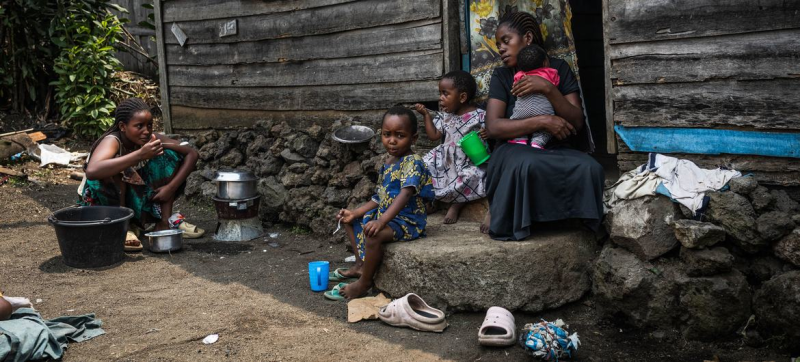- Inqilab Monch Seeks Home Adviser’s Exit |
- UN Calls for Calm in Bangladesh After Protest Leader’s Killing |
- DMP issues 7 traffic directives for Osman Hadi’s Janaza |
- Vested quarter fuelling chaos to impose new fascism: Fakhrul |
- Hadi’s namaz-e-janaza at 2:30pm Saturday |
Violence persists in eastern DR Congo despite peace efforts

A family in Goma, capital of North Kivu province in the Democratic Republic of the Congo (file, March 2025)
As the Foreign Ministers of Rwanda and the Democratic Republic of the Congo (DRC) signed a draft peace agreement in Washington on Friday, tensions and violence continue to grip eastern DRC.
Since January, the region has seen a new escalation of violence as the Rwanda-backed M23 armed group launched an offensive in North and South Kivu provinces.
While tensions persist in the DRC, both frontlines and negotiation positions are shifting, paving the way for peace, the Security Council heard on Friday.
The path to lasting peace in the DRC requires “collective action,” said Bintou Keita, Head of the UN peacekeeping mission in the country, MONUSCO.
“Priority must be given to dialogue over division, and national cohesion must be actively preserved,” she said.
Yet, while diplomatic efforts focus on ways to address the current crisis, the situation in other regions within MONUSCO’s area of operations also demands urgent attention.
With seven million people currently displaced across the country, 27.8 million facing food insecurity, and almost 1.4 million children in acute malnutrition, the humanitarian situation is dire.
The security crisis in the east has worsened the humanitarian situation, but due to funding cuts, MONUSCO lacks sufficient resources to respond effectively.
The suspension of funding from MONUSCO’s main donor, which covered 70 per cent of the humanitarian response in 2024, is “forcing humanitarian actors to focus solely on life-saving emergencies,” said Ms. Keita.
“We are at the end of July, and the humanitarian response plan is only 11 per cent funded,” she added.
Violence in the east continues to disproportionately affect women, boys, and girls, notably as rape and other forms of sexual violence are still systematically used as weapons of war.
Men and boys accused of links with opposing forces are at risk of abduction, while women and girls who have survived sexual violence face severely limited access to healthcare, as healthcare facilities are often targeted in attacks.
In 2025, over 290 schools were destroyed, with ongoing cycles of violence keeping 1.3 million children out of the education system in Ituri, in eastern DRC.

